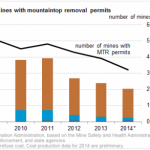
Guest Contributor Donald Welch: The Rural Appalachian Improvement League encourages plenty of groups to visit the Mullens, W.Va., area to volunteer. But, as an organization focused on sustainability and creating social change in southern West Virginia, the group also uses social media to engage youth and create opportunities for local residents.









